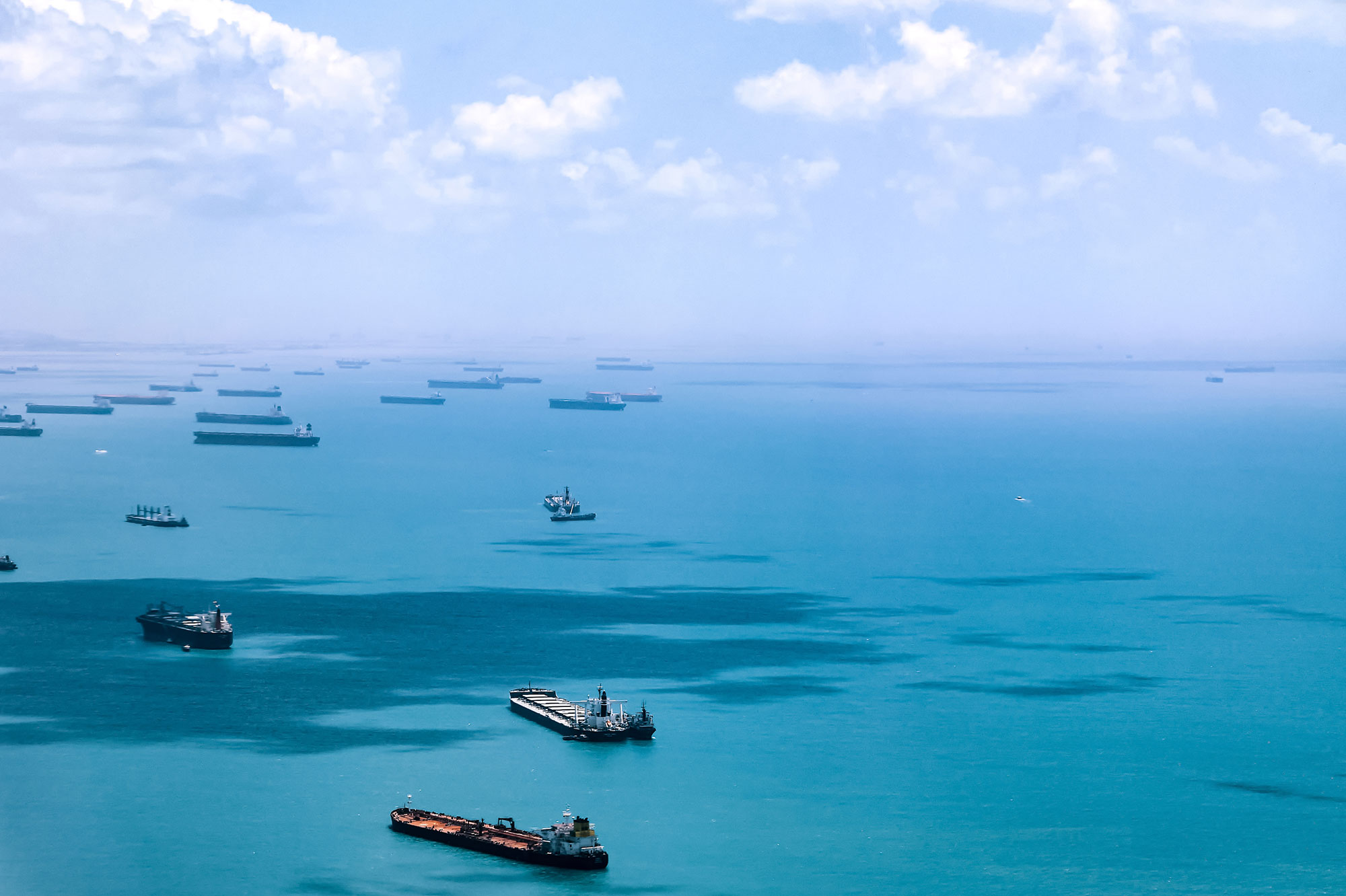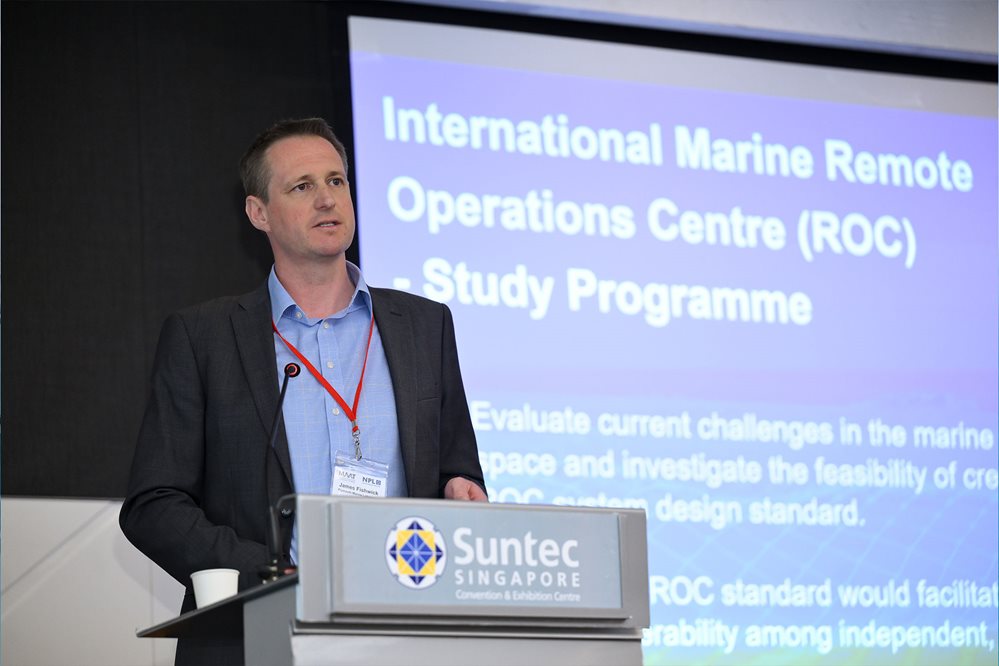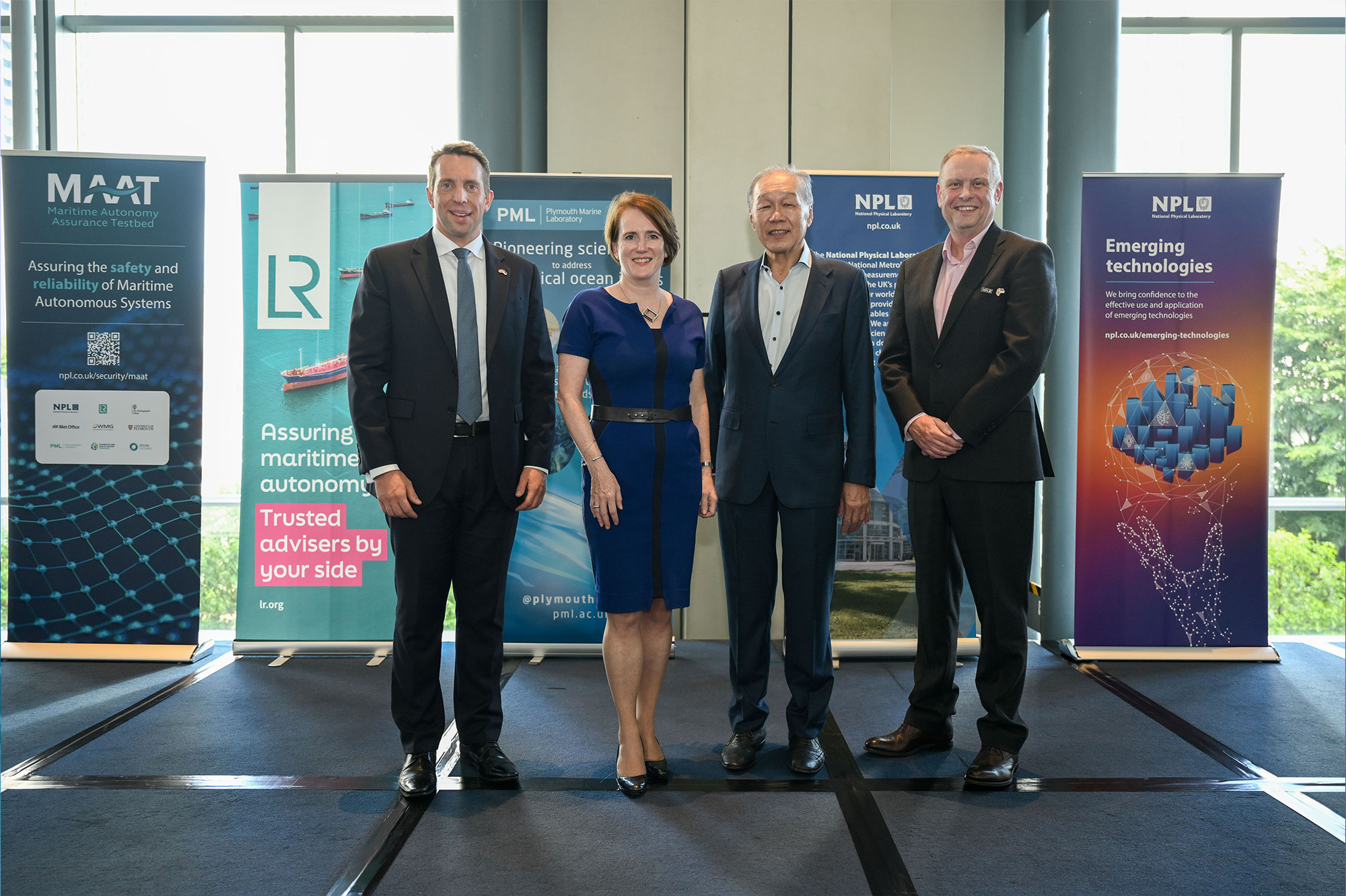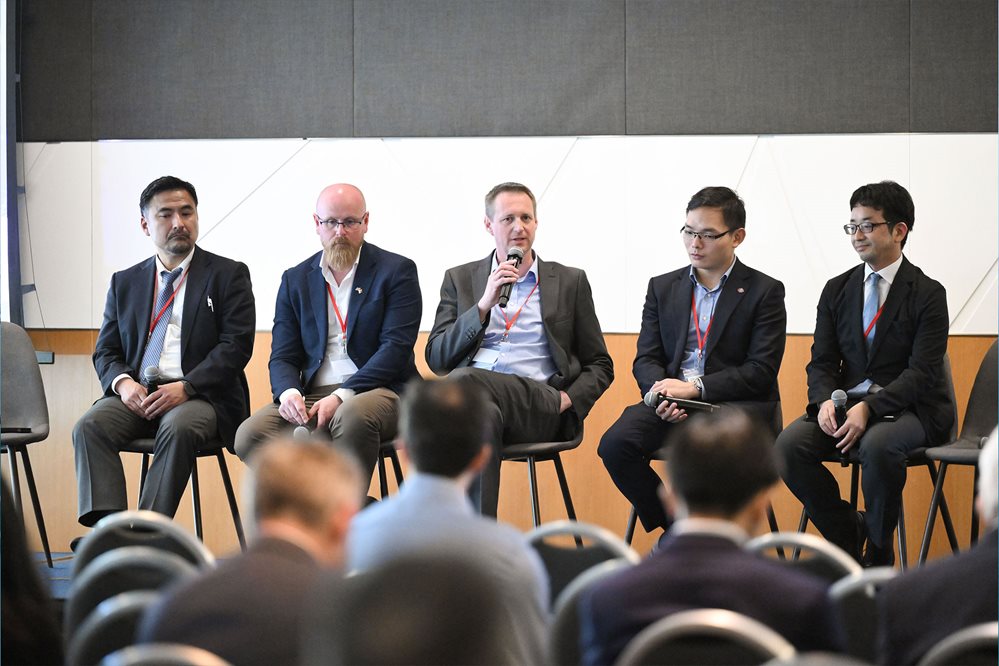Story
Future regulation of marine autonomy in discussion in Singapore
26 April 2024

The rapid progress of technological advancements in the maritime sector is poised to usher in the widespread adoption and use of autonomous vessels, whether they operate under remote control or are entirely self-governing.
This transformative shift underscores the critical need for comprehensive regulatory frameworks that prioritize safety at sea, environmental considerations and the secure transportation of goods and cargo. As such, the International Maritime Organization (IMO) is actively considering regulations and guidelines for Maritime Autonomous Surface Ships (MASS). A “non-mandatory goal-based” MASS Code is due to take effect next year, which will form the basis for a mandatory code expected in 2028.
In mid-April, PML’s Professor James Fishwick – as Director of the National Centre for Coastal Autonomy (NCCA) - joined a UK Marine Autonomy Summit as an invited speaker during Singapore Maritime Week. Hosted by the National Physical Laboratory and the UK Government’s Department for Science, Innovation, and Technology (DSIT), the summit was attended by distinguished speakers including His Majesty’s Trade Commissioner for Asia Pacific, Martin Kent, and the British High Commissioner to Singapore, H.E. Kara Owen CMG.
Professor Fishwick provided an update on an international project PML is taking part in focused on establishing robust standards for the Remote Operation Centres (ROCs) that control autonomous vessels. The Marine Assured Autonomy Testbed (MAAT) project, led by the National Physical Laboratory and Lloyd's Register, seeks to revolutionize the operational landscape of autonomous vessels by ensuring device-agnostic control and the ability to manage multiple vessels simultaneously and across international jurisdictions.
 Above: Professor James Fishwick speaking at the event
Above: Professor James Fishwick speaking at the event
Professor Fishwick explains:
“What sets our project apart is its international collaboration. Partnering with Canada and Latvia, we are pioneering a unique framework that allows us to test and operate autonomous vessels across different countries simultaneously. This not only enhances efficiency but also promotes international cooperation in the advancement of marine autonomy technologies.
Moreover, we are looking at the seamless handoff of vessel control between different control centres, facilitating 24-hour operations and supporting long-range autonomy. Using advanced hardware and software infrastructure we are paving the way for safe, efficient, and globally connected maritime operations in the future.”
As regulations surrounding marine autonomy continue to evolve, Remote Operations Centres (ROCs) will become an integral part of the regulatory framework, ensuring safe and efficient operations worldwide.
As part of the MAAT project, funding is currently being sought for its short-term and long-term programmes, with an expectation that the long-term programme will run until at least 2028.

Pictured (left to Right) Martin Kent (His Majesty’s Trade Commissioner for Asia Pacific), H.E. Kara Owen CMG (British High Commissioner to Singapore), Professor Low Teck Seng, (Chairman, Singapore Maritime Institute (SMI)), Prof. Peter Thompson FREng FInstP FRSC, Chief Executive Officer, National Physical Laboratory (NPL).
 Above: Professor Fishwick taking part in a panel discussion
Above: Professor Fishwick taking part in a panel discussion